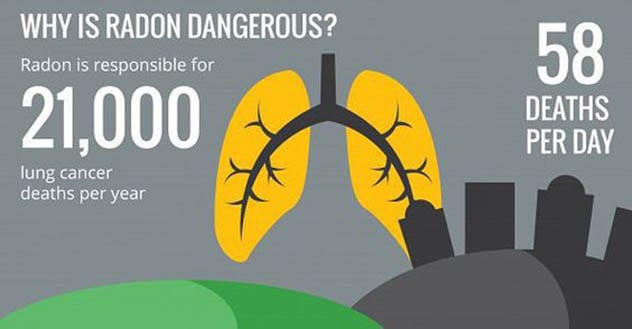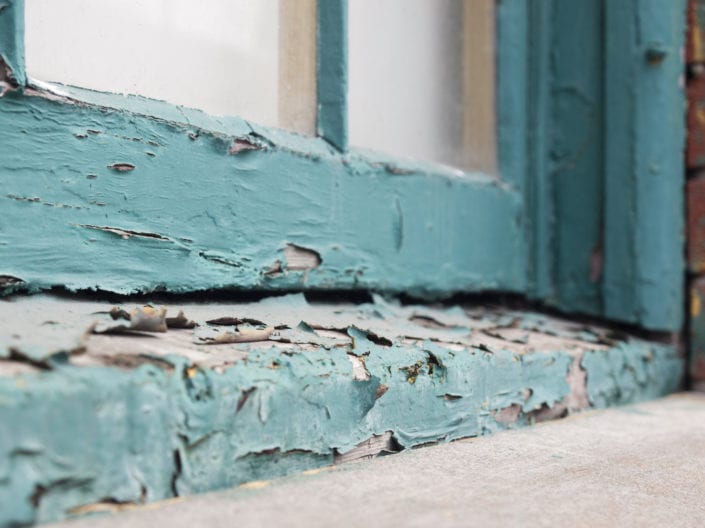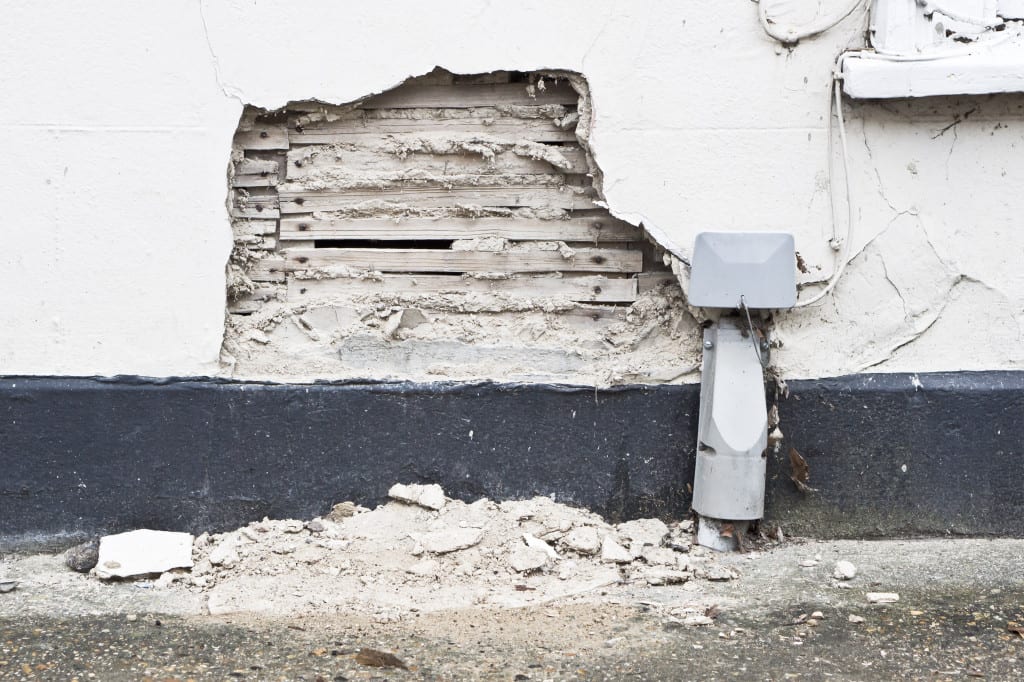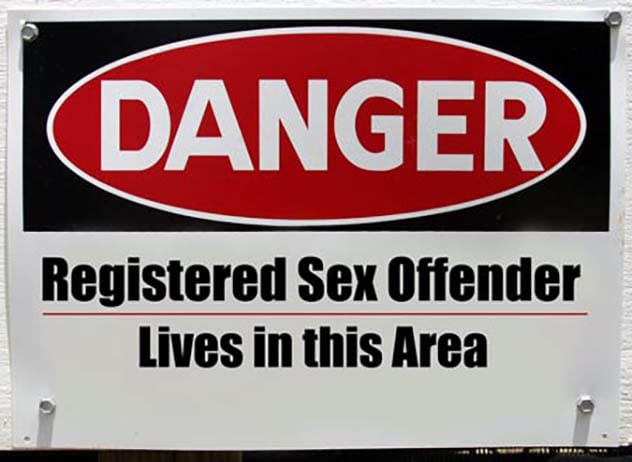 Crime
Crime  Crime
Crime  Animals
Animals The Animal Kingdom’s 10 Greatest Dance Moves
 Movies and TV
Movies and TV 10 Box Office Bombs That We Should Have Predicted in 2025
 History
History 10 Extreme Laws That Tried to Engineer Society
 History
History 10 “Modern” Problems with Surprising Historical Analogs
 Health
Health 10 Everyday Activities That Secretly Alter Consciousness
 History
History Top 10 Historical Disasters Caused by Someone Calling in Sick
 Animals
Animals 10 New Shark Secrets That Recently Dropped
 Movies and TV
Movies and TV 10 Forgotten Realities of Early Live Television Broadcasts
 Technology
Technology 10 Stopgap Technologies That Became Industry Standards
 Crime
Crime 10 Dark Details of the “Bodies in the Barrels” Murders
 Animals
Animals The Animal Kingdom’s 10 Greatest Dance Moves
 Movies and TV
Movies and TV 10 Box Office Bombs That We Should Have Predicted in 2025
Who's Behind Listverse?

Jamie Frater
Head Editor
Jamie founded Listverse due to an insatiable desire to share fascinating, obscure, and bizarre facts. He has been a guest speaker on numerous national radio and television stations and is a five time published author.
More About Us History
History 10 Extreme Laws That Tried to Engineer Society
 History
History 10 “Modern” Problems with Surprising Historical Analogs
 Health
Health 10 Everyday Activities That Secretly Alter Consciousness
 History
History Top 10 Historical Disasters Caused by Someone Calling in Sick
 Animals
Animals 10 New Shark Secrets That Recently Dropped
 Movies and TV
Movies and TV 10 Forgotten Realities of Early Live Television Broadcasts
 Technology
Technology 10 Stopgap Technologies That Became Industry Standards
10 Scary Things That Home Sellers Don’t Always Have To Disclose
If you have ever considered the purchase of a home, you have most likely run into a few different disclosures and rules regarding the residence. You may have wondered why the homeowner specifically mentioned something about where the home sits on the county flood plain line or outlined certain additions over the years. These are all good to know about your home in general, but the reason they have been so precisely noted is not that the homeowner thinks you care about the surrounding water levels, but because they are required by law to disclose the possible dangers of that particular property.
The purchase of something as significant as a house is one of the most important decisions you will make in your life. While the government tries it’s best to do everything in its power to make sure the transaction is fair and you are not buying a lemon of a home, a lot of issues slip through the cracks. Due to the age of laws, new developments, and sometimes honest discrepancies, home sellers do not always have to let you know of the potential risks of a building that you are seriously considering buying. The widely heard term, “Caveat Emptor,” is Latin and refers to the buyers need to diligently also take responsibility in making sure that everything regarding their potential purchase is disclosed. Caveat Emptor translates simply to, “Let the buyer beware.”
SEE ALSO: 10 Deadly Household Foods That Can Actually Kill You
10Radon

Radon is a toxic gas that results from the breakdown of natural radium in the soil. Radium is a byproduct of uranium and is short-lived as it releases harmlessly into the atmosphere. In large quantities though, radon is detrimental to our health and is the second leading cause of lung cancer in the United States. Unfortunately, we cannot see or smell this odorless gas, and although it may be possible to guess as to areas with higher levels based upon the soil composition, it can only officially be detected with special equipment.
Radon is unique in that it is thought to be harmless at low levels in its natural state, but can build up over time. The foundations of homes and basements are the perfect grounds for toxic levels to collect. Interestingly, not all states require homeowners to even disclose that they may have a deadly gas infiltrating their abode. In fact, only thirty-seven states, as of 2017, require the disclosure during a real estate transaction.[1]
9Lead-Based Paint

We have all heard of the dangers of lead and the warnings about your children eating paint. The warning does not come without reason, the poisonous lead that most paint consists of damages the nervous and reproductive system, as well as development and other areas of the body. Overall, lead paint is considered toxic, so toxic in fact that the government ruled that any home built before 1978 needs to disclose possible use of the stuff.
The seller disclosure is nationwide, however, with any disclosure, there are loopholes that you should look out for. Realize that, if the seller is unaware of lead-based paint that has been painted over before they lived there, then they obviously cannot disclose it. Very few people are going to regularly go around testing sections of paint around their home anyways. Because of this, it is recommended to assume that all older homes are likely to have lead-based paint whether the seller says so or not.
The other issue here is that the disclosure is only for homes before 1978. Paint could have been leftover and still used years later. Some states even continue to sell it off the shelf. For families with sensitivities, particularly those with young children, it may be best to have your walls and furniture tested regardless of the year or disclosure statement.[2]
8Meth

In the last couple of decades, Meth has become a major issue affecting the poor and rich alike. Drugs and illegal use of substances will always be a problem among the populous, but meth has made its presence known as a particularly harmful substance due to its addictiveness and extremely harmful side effects. Studies have shown that a large number of the population over 12 have used meth at some point in their lives, with the average age of users being in their early twenties. Sadly, the large-scale use extends far beyond the original user. Meth also affects those who are around abusers, as well as the property in which it was used or created.
Deadly chemicals as a byproduct of cooking and use are known to cause everything from sinus problems to cancer. Always left behind when a home has been afflicted with meth use, one would assume that the presence of these toxins would be a mandatory disclosure. Oddly enough, when a residence had been the basis of such activities though, most states lack laws regarding.
Only approximately half the states in the United States are legally made to disclose whether or not a home was a known meth lab, and many of the stipulations only go back a certain number of years. While there are methods of decontamination, this does not mean that the place is safe, especially if you have small pets or children rummaging around in nooks and crannies. If a test does not do enough to ease your fears of a potential purchase, a quick chat with the neighbors will generally be enough to confirm or deny any rumors of methamphetamine.[3]
7Infestations

Cockroaches, termites, mold, and bed bugs are all very real creatures that can bring down a home if not kept under control. Each of these pests begins as a small issue that, when left to thrive, can overtake a property to the point of condemnation. One would believe that a home seller would disclose such issues, or would be legally obligated to, however, there are a lot of desperate owners out there, along with a variety of different state laws that can be worked around.
Mold is one of the major issues that buyers know of and like to ask about. What most people do not realize though is that mold affects almost all homes to some degree or another. Unless you are allergic, you probably do not even know when it is there. Homeowners are obligated to disclose known issues like mold or pests, but they do not have to look for them. Some states are a little more sophisticated and require testing beforehand, but the laws do not specifically address a lot of important issues, such as a known infestation of bed bugs.[4]
6Off-Site Problems

Depending on the state you are in, you may or may not have to disclose issues that stem from places other than your property. CIty wide or environmental type problems are usually well known enough and talked about that, if they exist, you will know. Most disclosure forms require buyers to tell sellers about existing problems that they know of, off-site issues are different though.
If your basement regularly floods due to the city water system having problems, then you may not be obliged to tell the buyer about it. The buyer is supposed to be asking about the surrounding area anyways, and a citywide issue a seller may not feel is their responsibility. Another such off-site problem that not everyone will think of is the disclosure of nuisance neighbors. Again, this is dependent on state laws, but a problematic neighbor could be the death of a real estate transaction. The discrepancies here arise from differences in opinion. One person may consider a specific habit an issue, while the practice may be normal to another. Loud parties, barking dogs, and trash collectors could mean nothing, or they could be the bane of a potential buyer’s existence. From this perspective, it is difficult to determine what then needs to be disclosed. Simple disputes over lawn length usually fall into the “no need” category, but a “habitual and obnoxious behavior” might.
If you are the type who likes their peace or often finds yourself in neighborly disagreements, consider visiting with those next door first before making any assumptions as to whether or not you wish to purchase the home.[5]
5Essential Components

When buying a home, we assume it has all the required essentials. To be listed as a bedroom, for example, a certain number of doors and windows are expected to be there. It is also generally located directly on the listing whether or not the home has a garage, outbuildings, a basement, etc. One would think that any home they were buying then had essential home components too like a heating system, kitchen furnishings, vents, fans, etc., but this is not always the case.
The state of North Carolina, for example, does not require a seller to list any of the essential components of a home. Most people notice and ask about stoves or washers and dryers, but a missing water heater may be one of those overlooked but expensive replacements. In the south, a lack of air conditioning could be a major cause for concern, as could no heat in the northern states. Know your necessities before going into a deal to make sure you do not end up with a costly oversight simply because of an assumption.[6]
4Asbestos

Like radon and lead-based paint, asbestos is a known material often used in homes and also known to cause adverse health problems. Used in a variety of materials from insulation to piping, asbestos fibers are dangerous when inhaled and can cause scar tissue to build up within the lungs. Besides the typical health problems of asbestos, it is also thought to have other deadly side effects, like cancer.
Despite the known problems, it was not until more recent years that the government finally stopped the use of asbestos building materials in many homes and buildings. The actual material is not banned, however, and is widely found and ignored or dealt with dependent upon the laws of the state.
Because asbestos is most dangerous when airborne, the laws do not go out of their way to make homeowners get rid of toxic materials. It is generally safe to assume that most buildings built within the last fifty years will have a form of asbestos hidden away in a remote location. To be on the safe side, always get the materials in your home tested before going in to do your remodeling. You never know what might be harmless or cancer-causing.[7]
3Death

There is no doubt that superstitious or otherwise, a death in a house will affect a buyer’s idea of a potential home. Some people are thrilled with the idea of potential hauntings or ghost stories, and others will immediately shy away from the fact. Whether the death was peaceful or otherwise, with such a large emotional connection to historical circumstances, it would behoove a buyer to know whether or not a person died in their new home. Some states believe just that, but others see the other side. Reporting a death in the home could be seen as causing an unfair stigmatism against the seller, and is therefore not qualified as something that needs to be disclosed.
There are certain stipulations, of course. Depending on the state, the laws for disclosing serious crimes, such as violent murders, are a little more transparent. In some circumstances, for example, a peaceful death does not need to be talked about unless asked. In others, the admittance only needs to be made if the death happened within the last three years. The best way to ensure your home is not the scene of some grizzly murder of the past is a quick google search of the address.[8]
2Sex Offenders

If deaths in the home do not put you at unease, a sex offender living right next door to your children certainly will. Not only does their presence presumably put your family at risk, but the idea of sharing a neighborhood with a known criminal could also put a bad taste in the mouths of potential buyers. Because of this, most states do require sex offenders to register their employment, school attendance, and address.
Although not all states require disclosure of nearby sex offenders to a real estate buyer, there are several cases where the jury was certainly in the buyers favor for lack of disclosure. As the sex offender registry is public knowledge, it is always best to check first if this is a concern of yours.[9]
1Hauntings

Like an uncertain death disclosure, a haunting may or may not be a reason for a real estate transaction to go sour. There are those folks who specifically seek out spooky places and may even pay extra to be the owner of a home on the haunted registry. In most cases though, this is a small selling niche and is not the best route to go if you are in a hurry to get your home off the market.
To keep possible ghost chasers and superstitious folk from getting too involved in the sale of your home. Laws are surrounding what is known as a stigmatized property. A stigmatized property is one surrounded by rumor, good or bad. When selling a house, a bad reputation is not something that a seller wants. Ghoul disclosures are, therefore, not mandatory in all states. Unfortunately for the seller, you will most likely hear about it soon enough anyways through the gossip chain if you end up with a “haunted” dwelling.
As paranormal activity is rooted in people’s beliefs more than anything, the seller may or may not have to worry about a buyer finding out later on whether a house turned out to be haunted. In most cases, it is best to disclose the fact beforehand as the court rulings on such instances are not usually in the best interests of the non-disclosing seller.[10]
For similar lists, check out 10 Poisonings With Extraordinarily Common Household Items, and 10 Amazing Ancient Versions Of Household Items.
About The Author: As a full-time freelancer and RVer, Sharon likes to spend her time traveling, looking up weird facts, and checking out the local hubs. Though she mainly writes web copy and SEO based articles, she enjoys the occasional humor and research writing.
You can find out more about her through her LinkedIn.








